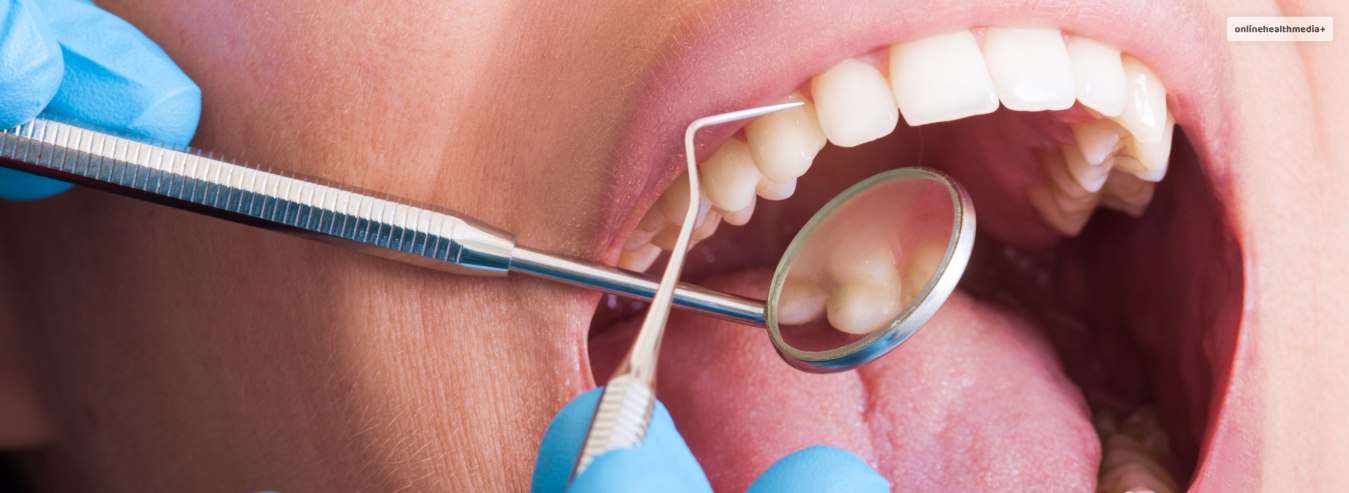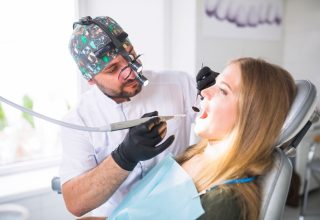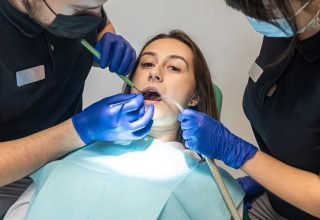What Are The Signs Of Infection After Root Canal? – Causes, Symptoms, Treatment
Can a root canal get infected? Yes, even if the possibility is mild, it’s possible. Lets understand signs of infection after root canal.
Even the root canal procedure is painless and safe. There is always a chance of having an infection after the procedure. The chances of infections are pretty rare, but patients can get mild to serious infections after the root canal procedure if they start to feel pain right after the root canal procedure. Then the first thing you have to know is the primary signs of infection after root canal.
Contents
5 Warning Signs Of Infection After Root Canal
Here are the five signs of infection after root canal. Read it and know when you should be conscious of the warning signs.
Hence you are aware of the toxic root canal symptoms. Then the next phase will be easy. You can save your infected tooth before things get worse.
Read More: The Causes And Treatment For A Chipped Tooth
1. Pimple Or Rashes In The Gum
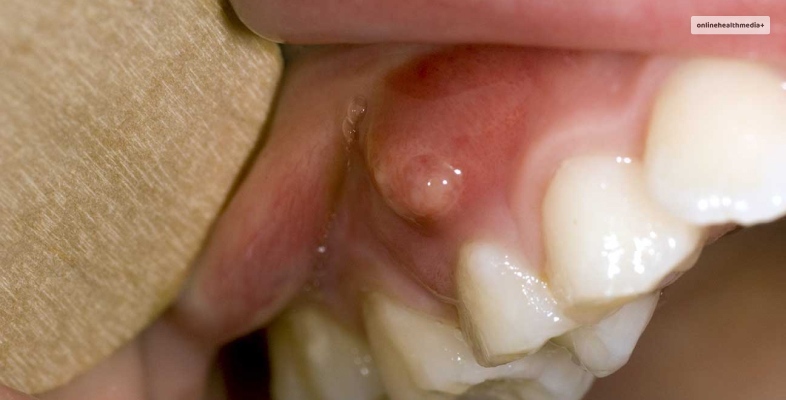
The first root canal infection symptoms are rashes and pimples in the gum. Before the root canal treatment, patients are asked about whether a root canal hurts. During the procedure, you may not go to feel anything.
But after the procedure, there is a very minimum chance of showing pimples and rashes in the gum. This is the first sign of an infected root canal.
These small pimples look like pus-filled pimples. If the pimples on the gum remain for more than seven to ten days, then this is the right time when you must contact your dentist.
2. Swallowing In Gum

Gum infection after the root canal is always possible. The infected areas can be warm or hot, especially when the place is near your teeth and gums. You will go to feel hot and experience burning sensations in the area. Burning sensations and tender gum are the signs of infection after root canal.
The first symptom is swallowing in the gum. Your oral infections can be serious and cause mild sensations of a burning mouth. You can try a lukewarm water compress, but if it doesn’t show any effect after five days, consult your dentist.
3. Burning Sensations Around The Gum
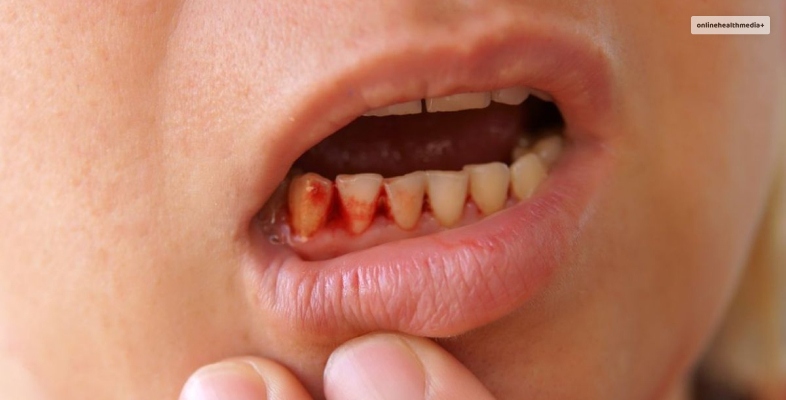
Sharp pain in the root canal areas is a clear indication that your teeth require medical attention. Pain just a few days after the root canal treatment is normal. But if the pain persists for more than five days, then it is a concerning point.
The infections are spreading from the root tip and also affect your gum and bone. There can be several reasons for root canal area pain. The burning sensation and inflammations are sometimes so severe that you have to take medication to ease your pain.
4. Persistent Sharp Pain

Swelling after root canal is possible. But if the pain persists for a long time. Even after taking antibiotic medications, there are no signs of pain release. This is a clear sign that you are suffering from toxic root canal symptoms.
Usually, this sharp pain is similar to cavity pain. But unlike the night pain, you will start to have painful sensations over the days. The post-root canal pain is the same as cavity pain. The sharp pain, feeling, and tenderness are the signs of infection after root canal.
5. Fever

Fever is a very important sign of infection after root canal. Not only for gum or tooth infections often, but fever is also the primary symptom of every kind of severe pain. Often pain and fever are the primary symptoms of any kind of broken bone. Like this, fever is becoming the root canal infection symptoms.
For this type of case, the patients are taking OTC medicines. But if the pain persists for more than three or five days, the next phase is to get help from the dentist. The dentist will go to examine the tooth and identify the infection. Fever and pain are the signs of infection after a root canal, so always keep tapping on that.
What Might Cause Infection After A Root Canal?
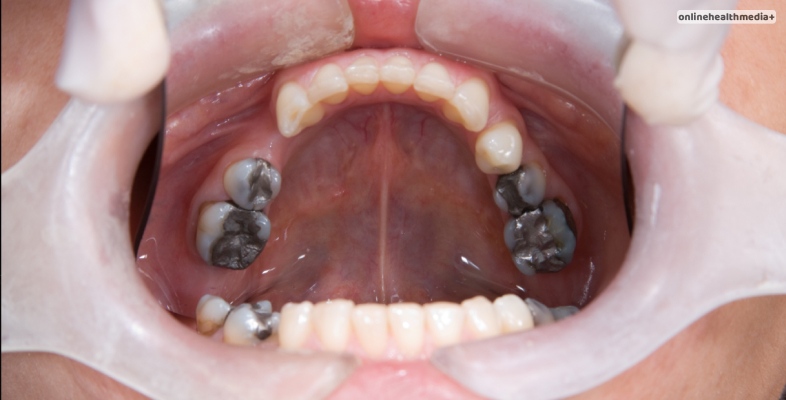
Many of the patients are complaining about root canal infection years later. This often happens when infections do not remove entirely, and the infection spreads through the gum bone.
A poorly done root canal is often linked with an infected root canal. Here are some of the causes which might be the reason for root canal infection.
- Missed Canals: Often, the root canals are turning to be a complicated process as teeth have multiple roots. And often, due to the missing infectious root, infections are attached to the root.
- Deep Infections: If the patient’s infections are spreading through the deep canals of teeth. Even after a few cleaning steps, dentists can not reach the bottom of the tooth.
- New Cavity Found: After your root canal, there is a possibility of having a new cavity. And due to the misplacement of the crown area, often the cavity breaks back into the tooth.
These three are the common causes of infections after the root canal procedure. But the signs of infection after root canal start with severe pain.
How To Treat Root Canal Infections?
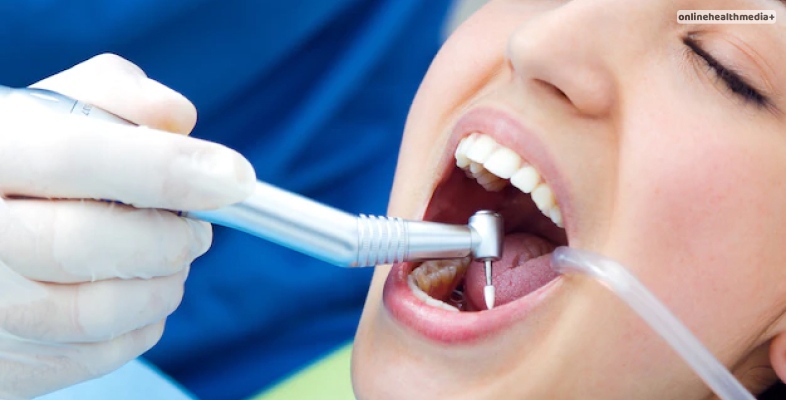
To treat tooth and gum infection after root canal, the best way is to book an appointment with a dentist.
Here are the steps that dentists follow to treat an infected tooth. After showing any signs of infection after root canal the x-ray is the next step.
- Step 1: Your dentist will perform an X- ray. For better looking at the dead tissues around the infected tooth.
- Step 2: Numb the whole area using local anesthesia.
- Step 3: Protect the whole area. And use a dental drill to get through the filling and enamel and take out the filling and enamel.
- Step 4: Clean out the whole areas where the tissues are dead or infected.
- Step 5: Dry out the area and fill the enamels and pulp areas with safe and latex-based polymer fillers.
- Step 6: The dentists use amalgam or composite filling materials to protect the tooth and allow infections to heal.
- Step 7: Often, dentists carve out the outer enamels of the teeth and put a crown on the top of the teeth.
How to Prevent Root Canal Infections?

The signs of infection after root canal is very similar to other tooth infections. There are several procedures that you can apply to prevent root canal infections. First is taking care of the teeth as well as possible.
Here are some of the tips which you must follow to prevent any kind of root canal infection.
- Brush And Floss At Least Twice Or Thrice A Day.
- Use The Doctor’s Medications After The Root Canal Procedures.
- Taking The OTC Medications For Controlling The Infection’s Overspreading.
- Perform Dental Cleaning At Least Twice A Year.
Now you know what the root canal infection symptoms are. Match up the symptoms, and once you are experiencing post root canal pain, book an appointment with your dentist and seek help.
Read More: The Causes And Treatment For A Chipped Tooth
Frequently Asked Questions (FAQs):
Ans: The time can be any day, from one day to the year. However, if you are experiencing pain, it is better to consult your dentist as soon as possible.
Ans: No, if the infections are spreading in the deep of your canals, then antibiotics can’t help you.
Ans: An X-ray can detect the infection areas even before showing any symptoms of infection.
Ans: Crown infection ratios are very rare. But it can happen. Root canal infections are spreading from the teeth root.
Bottom-line:
Even though the root canal procedures are not very complicated, there is a very minimum chance of gum infection after root canal. So precautions are the best solutions. The first precaution is following every instruction of your dentist. And if you find any difficulties like tooth pain or gum discolorations, immediately book an appointment with your dentist.
Read Also:
- Toothache: Why It Is Considered A Dental Emergency
- 7 Things to Think About When Getting Tooth Aligners
- Battling Tooth Cavity and Decay – What Are the Effective Options?
